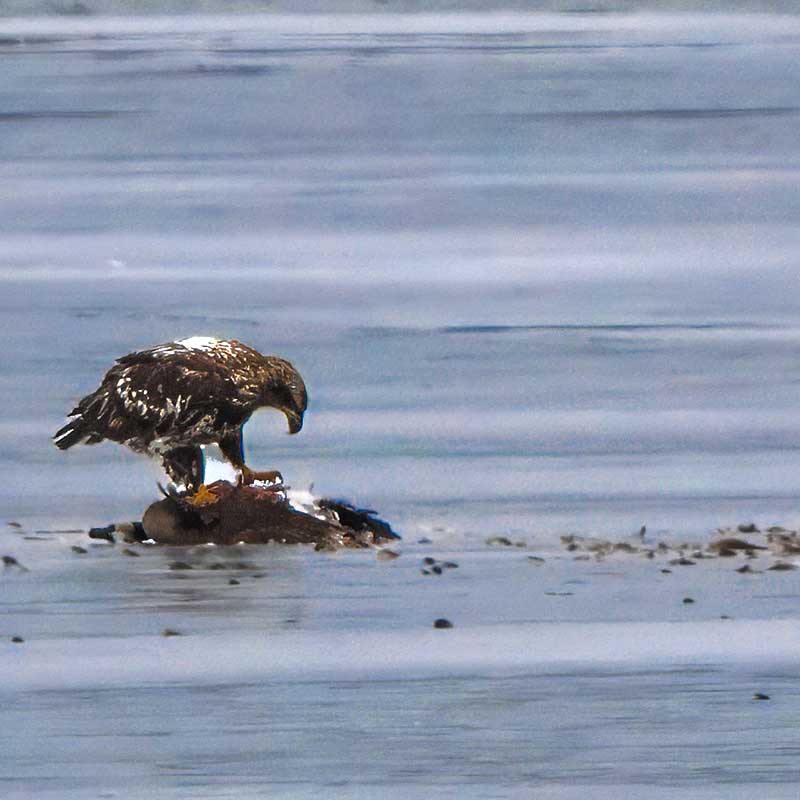Sound Familiar?
Canada geese in Ontario are dying in what virologists are calling an “unprecedented” worldwide surge of avian flu (H5N1). In the past year, the disease has affected 80 countries, and since spreading to North America, probably via migratory species, has killed 72 million farm birds in the United States alone. In January, virologists in Kingston, Ontario, collected 30 Canada goose carcasses from the Lake Ontario waterfront, all of which tested positive for the wildly infectious disease.
While avian flu affects mostly aquatic species such as gulls, terns and geese, it is also being found in mammals such as foxes, skunks, and bears, and in birds of prey such as eagles, which feed on the dead birds. In Antarctica, the breeding ground for 100 million birds, H5N1 was detected in brown skuas last October, and three months later hundreds of elephant seals were found dead.
While Leah Birmingham, of the Sandy Pines Wildlife Centre in Napanee, near Kingston, says there is little risk of avian flu affecting humans, Rebecca Paulson, a virologist at the University of Georgia, notes that the surge in new cases around the world is a huge concern to wildlife biologists. “My gut,” she says, “would tell me [this] might be part of the new normal.”

Photo by Richard Cooper.
